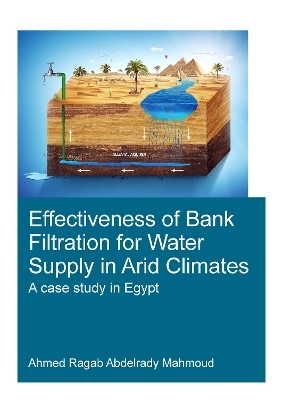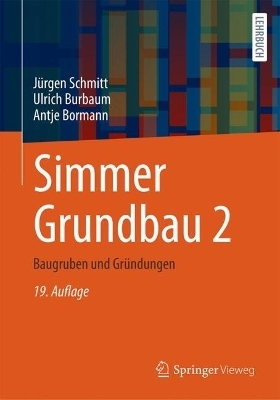
Effectiveness of Bank Filtration for Water Supply in Arid Climates
CRC Press (Verlag)
978-0-367-74673-5 (ISBN)
In many developing countries, water demand is increasing while surface- and groundwater resources are threatened by pollution and overexploitation. Hence, a more sustainable approach to water resources management and water treatment is required. In this capacity, bank filtration is a natural treatment process that makes use of the storage and contaminant attenuation capacity of natural soil/rock. However, BF is site-specific and a significant knowledge gap exists regarding the design and management of bank filtration systems, particularly in developing countries. This research aimed to address these gaps and contribute to the transfer of bank filtration to developing countries. This study comprised both column and batch laboratory-scale experiments to determine the effect of environmental variables such as temperature, raw water organic composition and redox conditions on the removal of chemical pollutants such as organic matter, micro-pollutants and heavy metals as well as the mobility of iron, manganese and arsenic under anaerobic conditions. Ultimately, the effectiveness of BF for supplying high drinking water quality was assessed in a case study in Egypt. The study showed that more than 80% of biodegradable organic matter was removed during infiltration at temperatures between 20 and 30 °C. However, humic compounds enriched during BF, required post-treatment. Moreover, high humic content of infiltrating water reduced the removal of heavy metal and promoted the release of metal (loids) into the infiltrating water, rendering it more feasible to install BF wells within surface water systems with low levels of organic matter. Moderately-hydrophobic organic micropollutants were most persistent and required infiltration times longer than 30 days for complete elimination even at high temperatures (>20 °C). Finally, design parameters such as the number of infiltration wells should be configured to minimise the proportion of polluted groundwater in the pumped water. Overall, this study provides insight into the effectiveness of BF in removing chemical pollutants from surface water and proposes guidelines for the successful application of BF in developing countries where arid conditions and high temperatures prevail.
Ahmed is a post-doctoral researcher at the water management department, TU Delft. He obtained his bachelor degree in chemistry from Aswan University (Egypt), postgraduate diploma in applied environmental geoscience from Assiut University (Egypt), a master of science in water resources management at ITC, University of Twente. He conducted his PhD research at TU Delft and IHE-Delft, focused on development of a management framework for bank filtration technique for water supply in arid environments. Ahmed has participated in several projects in water resources management, including; groundwater modelling, remote sensing for resources management, and modelling of water quality. He also developed a remote-sensing based model (AquaSEBS) to estimate the evaporation rate over fresh and saline water bodies. His research interests include: DNA tracer for hydrological processes, managed aquifer recharge, removal of micropollutants, and groundwater modelling.
Introduction, Removal of dissolved organic matter during bank filtration, Removal of organics micro-pollutants during bank filtration, Removal of metals during bank filtration, Reduction of iron, manganese and arsenic during bank filtration, Analysis of the performance of Bank Filtration for Water Supply in Arid Climates: case study in Egypt, Conclusions and future perspective.
| Erscheinungsdatum | 15.01.2021 |
|---|---|
| Reihe/Serie | IHE Delft PhD Thesis Series |
| Verlagsort | London |
| Sprache | englisch |
| Maße | 170 x 240 mm |
| Gewicht | 381 g |
| Themenwelt | Naturwissenschaften ► Geowissenschaften ► Geologie |
| Naturwissenschaften ► Geowissenschaften ► Hydrologie / Ozeanografie | |
| Technik ► Bauwesen | |
| Technik ► Umwelttechnik / Biotechnologie | |
| ISBN-10 | 0-367-74673-5 / 0367746735 |
| ISBN-13 | 978-0-367-74673-5 / 9780367746735 |
| Zustand | Neuware |
| Informationen gemäß Produktsicherheitsverordnung (GPSR) | |
| Haben Sie eine Frage zum Produkt? |
aus dem Bereich


